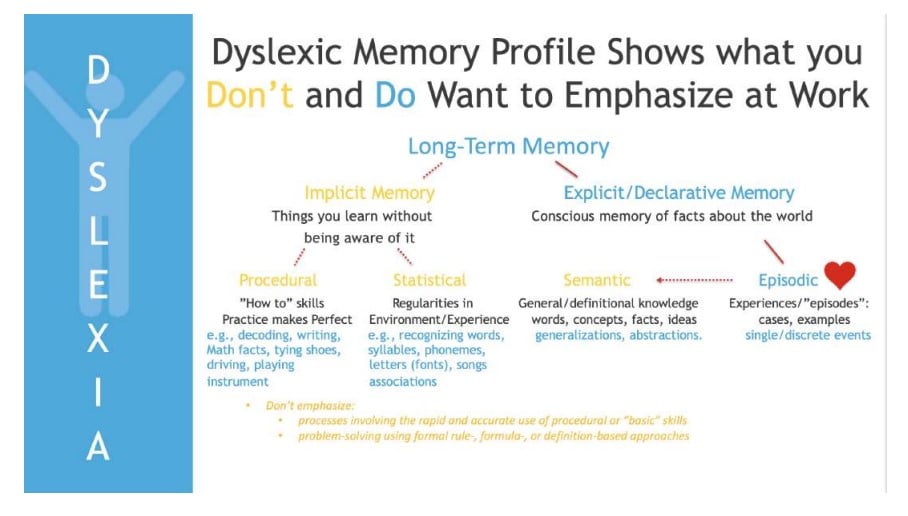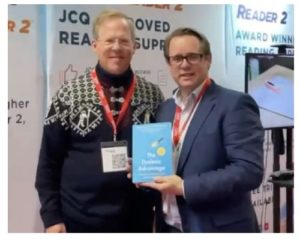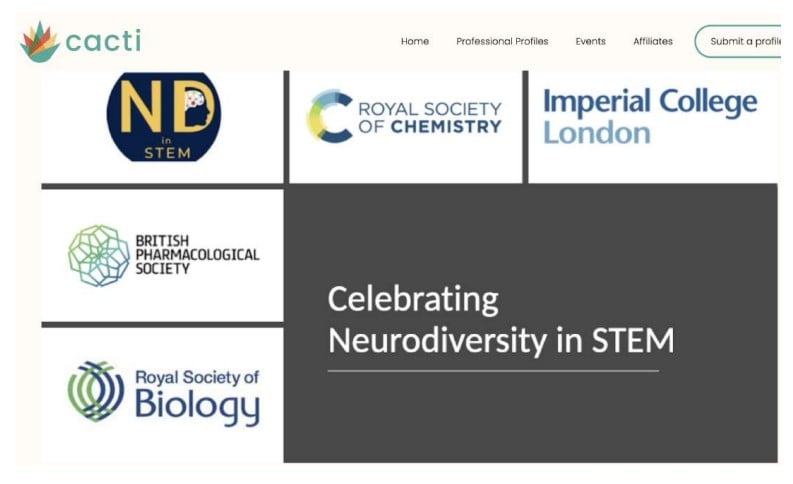 In a whirlwind trip, Brock met up with Dr. Helen Taylor of the University of Strathclyde and Cambridge University (Dyslexia as an Evolutionary Advantage) to speak at GCHQ (Government Communications Headquarters) – the United Kingdom’s Code and Cypher School, Imperial College (Britain’s MIT)’s Celebration of Neurodiversity in STEM (below), the Dyslexia Show 2023, and many colleagues and experts that we have know for years through their works and research, but never had a chance to meet in person.
In a whirlwind trip, Brock met up with Dr. Helen Taylor of the University of Strathclyde and Cambridge University (Dyslexia as an Evolutionary Advantage) to speak at GCHQ (Government Communications Headquarters) – the United Kingdom’s Code and Cypher School, Imperial College (Britain’s MIT)’s Celebration of Neurodiversity in STEM (below), the Dyslexia Show 2023, and many colleagues and experts that we have know for years through their works and research, but never had a chance to meet in person.
Dyslexia in the United Kingdom is very different from Dyslexia in United States.
I think it’s fair to say that dyslexic strengths are more widely researched and recognized at all levels of education (from early grades through higher education) as well as at work. Here is the US, there is tremendous emphasis on early literacy and decoding, but with far too little available for older students including those at university. In the UK, there is Access to Work which provides support for things like dyslexia coaching and assistive technology. Here in the States, there are departments of vocational rehabilitation and AskJan.org, but specific informed support for adult dyslexics is much rarer and harder to find.
British intelligence has long recognized the benefits of neurodiversity and dyslexic minds in surveillance and spycraft.
“Jo Cavan oversees recruitment for the section of the British Intelligence Services that provides surveillance of networks and telecommunications. He states that four out of ten of his department employees are dyslexic. ‘We are looking for people who can quickly spot small anomalies in the big picture. They must be able to sift through large amounts of data to prevent a terrorist act or the organization of a crime. Skills such as good shape and pattern recognition are essential. And many of my colleagues with dyslexia have these abilities.”
– Susan Ibitz (2022) The Super Power of Dyslexia – Why does the British secret service hire dyslexics as profilers?
To our knowledge, the intelligences services here in the states have not been as outspoken as the GCHQ about their desire to recruit dyslexic people for their service. The GCHQ has a neurodiversity advisor and dyslexia and dyspraxia group.
We were told that some 10+ years ago when our book first came out, the neurodiversity advisor shared our book and even did some exploratory work with employees about MIND strengths. If only more companies tried to understand the different minds that make up their organization.
For his talk at GCHQ, Brock spoke about some of the cognitive benefits that come with dyslexic thinkers – and spent some time talking about personal or episodic memory and visualization and scene construction.
It was a joy to also see prominent dyslexic professionals organizing events like the one at Imperial College, where people can talk about their different career paths and how they found and built on their strengths.
Imperial College’s Neurodiversity events were created by Dr. Sara Rankin, a world-caliber scientist who is also dyslexic and recognizes the importance of neurodiverse minds in science and technology disciplines.
In the discussion segment with an expert in bioinformatics, biotechnology CEO, and clinical drug scientist, all three recognized the importance of being self-aware and being open to tell their team or managers what they needed to perform well in their job. One of the group mentioned that she wasn’t always confident enough to speak up and disclose, but that happened only after some years.
When there is an opportunity for dyslexic professionals to talk aloud about their work experiences, inevitably there are recurring themes, with strengths – like interdisciplinary thinking as well as challenges.
It’s refreshing to hear from so many accomplished STEM professionals; to hear about how they overcame their struggles, but also how they discovered their talents. Every workplace should have events like these on an annual basis!
Brock also had a chance to speak at Dyslexia Show 2023 (no recordings available) where he spoke on Understanding and Using the Dyslexic Mind at Work.

Like his talk at Imperial College, his talk at the Dyslexia Show was warmly received.
 At the event, Brock had a chance to meet up with Jack Churchill, OBE, co-founder of the company that makes those wonderful Scanning Pens.
At the event, Brock had a chance to meet up with Jack Churchill, OBE, co-founder of the company that makes those wonderful Scanning Pens.















